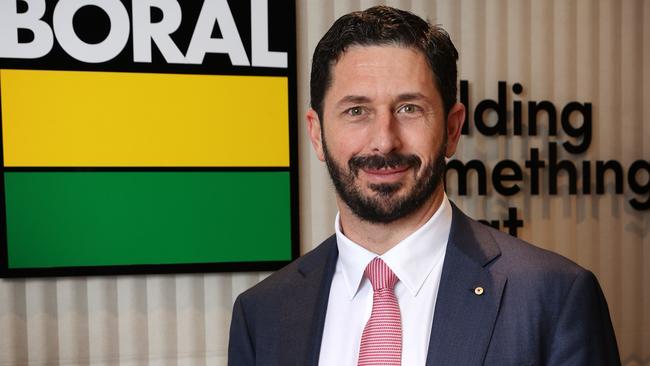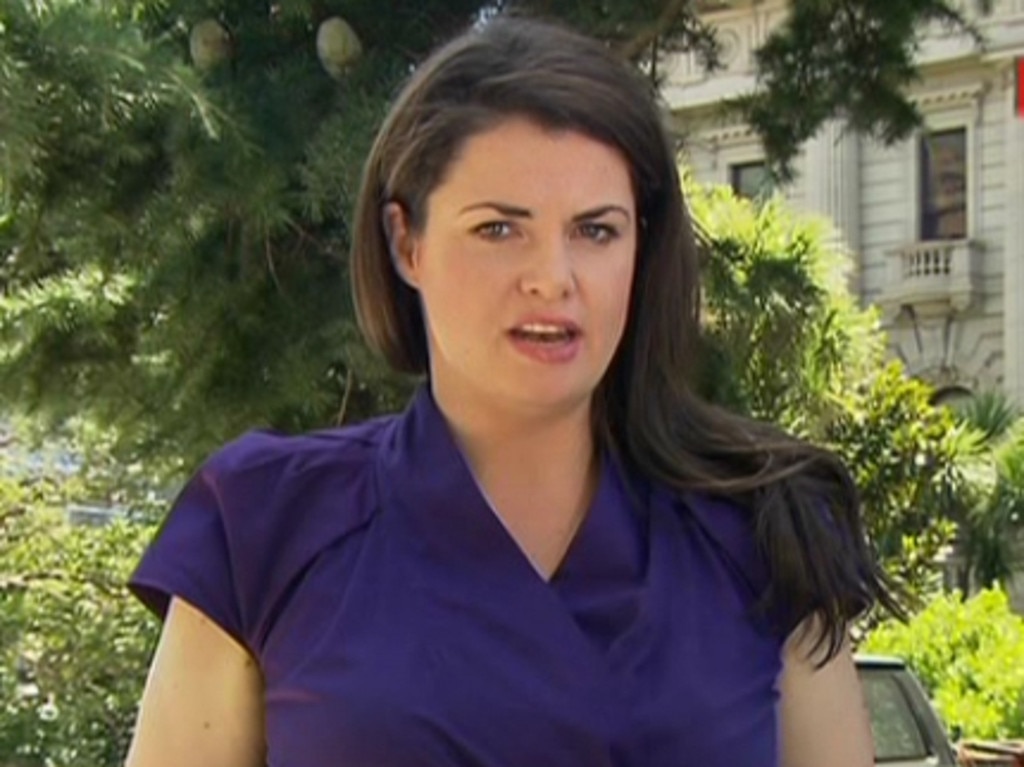Seven Group boss Ryan Stokes brushes off housing slump after delivering 20pc profit jump
Ryan Stokes says he is comfortable looking beyond the slowdown in the residential property sector currently crimping demand at Boral, and sees strong prospects for the building materials firm.

Ryan Stokes says he is comfortable looking beyond the slowdown in the residential property sector currently crimping demand at Boral, and sees strong growth prospects for the building materials company that Seven Group just acquired in a semi-hostile takeover.
“There is a record level of population growth and a massive shortage of housing in every capital city, so medium-term, we need to see a step up in housing construction and that is going to play positively for Boral,” the Seven Group chief executive said.
“It won’t necessarily happen throughout full year 2025 but it’s definitely going to happen. We will see a step up in housing.”
The asphalt and concrete company was a stellar performing unit within Seven Group’s full-year results released on Wednesday, with earnings before interest and tax surging 61 per cent to $372m, making it the second-biggest profit contributor.
The Stokes family paid $1.9bn to grab full control of Boral just a few months ago after taking a majority stake a few years earlier, installing a new boss at the company and hiking prices in products where it has market leadership such as concrete, where it increased rates by 12 per cent last year.
Boral’s independent directors initially recommended against the Seven Group takeover, in part because of the strength of its infrastructure contracts, which more than offset its residential exposure, but changed their ruling after a dividend-sweetened offer.
Mr Stokes said he was confident residential would bounce back too, given the housing crisis and the Albanese government’s commitment to deliver the construction of 1.2 million homes over five years.
“It is a positive fact … that they have set an ambition around housing,” he said. “Seeing government step in and try to facilitate that sector should be a positive.”
Investors reacted strongly to the company’s positivity, with Seven Group shares surging 8.7 per cent during trade on Wednesday to $39.91 even after it forecast profits would likely taper back to “high single-digit EBIT growth expected in FY25”. Underlying earnings before interest and tax jumped 19.6 per cent to $1.42bn.
Tribeca Investments portfolio manager Jun Bei Liu said there was clearly “a bit of slowdown in residential”, as a result of a series of interest rate hikes which will affect the Boral business.
“Even though they’ve got infrastructure … residential is slow at the moment and Boral is skewed much more to high-rises (which) don’t look great in terms of pipeline,” she said.
Ms Liu said she expected the current interest rate cycle would also have a slight impact on Seven Group’s star WesTrac Caterpillar division. WesTrac, which sells and maintains heavy machinery for mining, was the biggest contributor to Seven Group earnings, with a 19 per cent increase in revenue to $5.8bn and a 25 per cent surge in EBIT to $623m.
At industrial hire company Coates, revenue was marginally up to $1.1bn and EBIT rose 9 per cent to $327m.
Despite some concerns about the impact of rates on Seven Group, Ms Liu remains a holder of the company’s stock. She also pointed out that while Seven Group had forecast a slowdown in growth this year, the company had a track record in under promising and over delivering to get to the “double digit” growth everyone was expecting.
“It’s not expensive, it’s run by great management, and in Australia we have very limited exposure to infrastructure spends, as well as very limited exposure to building material companies so we can’t actually play the housing shortage,” she said. “So this company actually is very well positioned.”
However, not all of Mr Stokes’ moves to position Seven Group well have played out.
Its investment in Beach Energy continues to disappoint. Revenue at Beach rose 9 per cent but EBIT dropped 13 per cent to $99m as annual production fell 7 per cent, driven by adverse weather and reduced domestic demand.
For Mr Stokes, Beach was expected to be a way to capitalise on an expected east coast gas shortfall, but instead it’s suffered cost blowouts, lower-than-expected gas reserves at one site and possible delays at a project earmarked to drive growth.
Mr Stokes admitted Beach chief executive Brett Woods, whom he installed in the job more than six months ago, would have his work cut out for him delivering on the gas company’s promise.
“Brett’s a really good operator with very similar operating style to other SGH executives, and so I think he will bring in a discipline, and ultimately, the real test will be delivered through full year 2025,” Mr Stokes said. “That’s going to be the key and very important for us to build investor confidence.”
Also failing to deliver – in much more public terms – was the controversy-plagued Seven West Media, which had revenue fall 5 per cent and EBIT plummet 58 per cent to $25m on weaker advertising sales. Its Channel 7 unit was the subject of an investigation this week by the ABC’s Four Corners program which alleged sexism, bullying and harassment.
Earnings per share for the conglomerate rose 28 per cent to $2.31 and the company will pay a final dividend of 30c per share. The company’s reported statutory net profit fell 19.2 per cent to $522.1m.





To join the conversation, please log in. Don't have an account? Register
Join the conversation, you are commenting as Logout